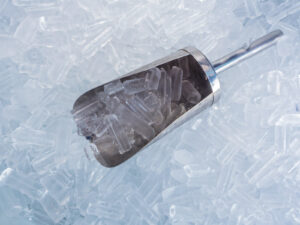Bacteria in food and the risks they pose

The human body is made up of a number of interconnected systems and the malfunctioning of one system can affect the others. You should follow the good habits in your lifestyle to protect your body from contact with potentially dangerous micro-organisms, including bacteria. Like any food, ice cubes can contain bacteria. This has been proven by experts from a number of renowned institutions from all over the world who, over the years, have studied ice and the bacteria it contains and their effects on the human body. Samples from bars, restaurants, various catering outlets, ice cube manufacturers, and home-made ice revealed a number of bacteria that can be harmful when consumed. It does not matter which source the ice comes from. The likelihood of bacteria being present at home, in catering equipment, or in manufacturers is high and no source can be excluded. This is because ice contamination is always due to human factors and inappropriate ice preparation/production.
Escherichia coli is by far the most common bacterium found in contaminated ice. Escherichia coli also known as E. coli is a bacterium naturally found in the large intestine of humans and warm-blooded animals. It performs important functions and plays a beneficial role in the intestine. E. coli is involved in the breakdown of food and the production of B-vitamins and vitamin K.
As long as it stays in the digestive system, it does not pose a threat to your health. However, if it gets to other places, they can cause various ailments and diseases. The most common is food poisoning. Symptoms of Escherichia coli infection from food poisoning include vomiting, diarrhoea, abdominal pain, headaches, weakness, slight fever, and bloody stools. Escherichia coli can also enter the urinary tract causing urinary tract infections and inflammation of the bladder and kidneys. Urinary complaints caused by Escherichia coli are often suffered by pregnant women.
Escherichia coli can also enter the respiratory system and cause chronic sinusitis. In neonates, it can cause meningitis. Escherichia coli is also the cause of sepsis, a dangerous condition that in extreme cases can lead to death. Other bacteria that can be dangerous to your health are the bacteria from the Pseudomonas group, particularly fond of wet environments. The bacteria are present in the environment and does not pose much of a threat to a healthy person, but if the immune system is somewhat compromised (a reduced immunity of the body), they can cause a lot of trouble. They cause, among others, infections of the middle and outer ear and a wide range of infections of the respiratory (including pneumonia), nervous, digestive, osteoarticular, and urinary systems. It can also cause myocarditis or meningitis. Pseudomonas aeruginosa can also seriously infect the cornea of the eye and cause dermatological problems.
However, again, the serious consequences of infection like those referred to above affect immunocompromised people and those struggling with such diseases as cancer, cystic fibrosis, AIDS, and burns. As the bacteria like wet and humid environments and are very resistant and active in the ice cube production process, it is necessary to take special safety precautions in the environment and exceptional care of the entire production system. Now, we move on to staphylococci, bacteria that are present virtually everywhere. They are harmless to humans as long as the conditions are not conducive. Like E. coli, they mainly cause food poisoning. Infections mainly occur in summer, due to the consumption of thawed food, including ice. Rapid absorption of exotoxins present in food causes nausea, vomiting, abdominal pain, and fever. Another important factor is fungi and moulds. These are mainly present in homes and catering establishments. They can appear every time the freezer is defrosted. Therefore, inadequately and inaccurately cleaned doors, drawers, and compartments of the appliance pose a potential risk of their entry into the frozen food. They are proven to be present in inadequately cleaned systems of appliances, such as cube makers in the catering and hotel industries. Also bear in mind that there are various products stored in freezers, each with different bacteria. The bacteria can move from one product to another, causing danger to your health if you consume them. There are also a wide variety of other bacteria that can potentially be harmful. Therefore, once you have purchased food-safe ice, be sure to store it properly.


Can you get sick from contaminated ice?
There are few studies that provide information on standards for the production of ice cubes. One of them are reports released by ice machine manufacturer Ice-O-Matic. They showed that almost 40% of operators acknowledge that they did not realise how often the ice machine, especially the water filters, needed cleaning. This showed that this area is often a neglected place. In addition, despite being professionally involved in the production of ice cubes, operators were unaware that bacteria were able to survive in ice.

The dirty truth about ice cubes
Ask yourself the question, how clean is the ice in your glass? If you are not careful, your drink has a lot of dangerous bacteria, no matter where the ice was made, whether in a pub, restaurant, ice factory, or your own home. You may think that micro-organisms do not survive in the icy conditions of freezers, but the truth is quite different and this is backed up by years of research by scientists around the world freezing bacteria and studying their survival rates.

Dziwny posmak lodu
Niejednokrotnie właściciele kostkarek lub lodówek z kostkarkami lub osoby przygotowujące lód w kostkach z foremek, próbując delektować się przygotowanym na lodzie napojem zauważyli, że jego posmak jest nieco „dziwny”.
Stowarzyszenie Producentów i Operatorów Certyfikowanego Lodu Spożywczego, (Association of producers and operators of certified food ice) KRS [National Court Register] No. 0000784552, REGON [National Official Business Register] No. 383424111, NIP [VAT] No. 7010927104 00-630 WARSZAWA, ul. POLNA 24/7

